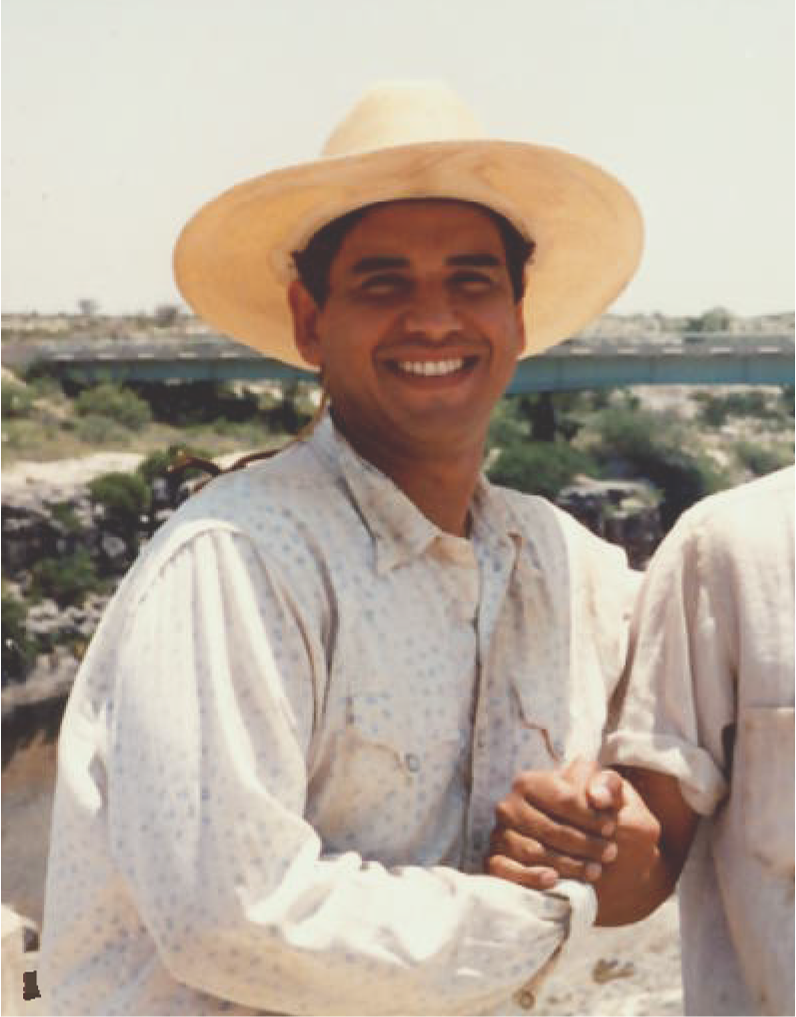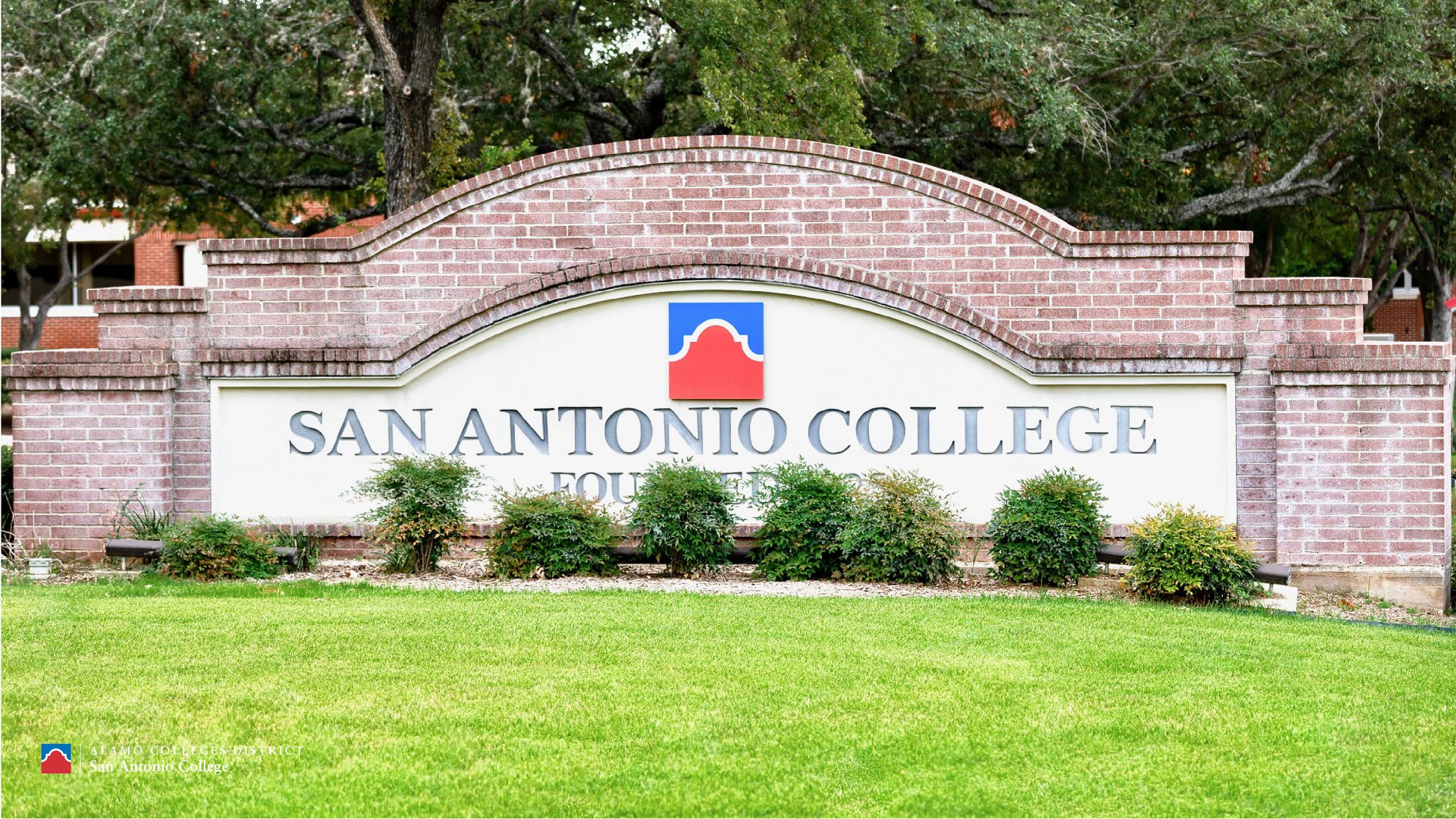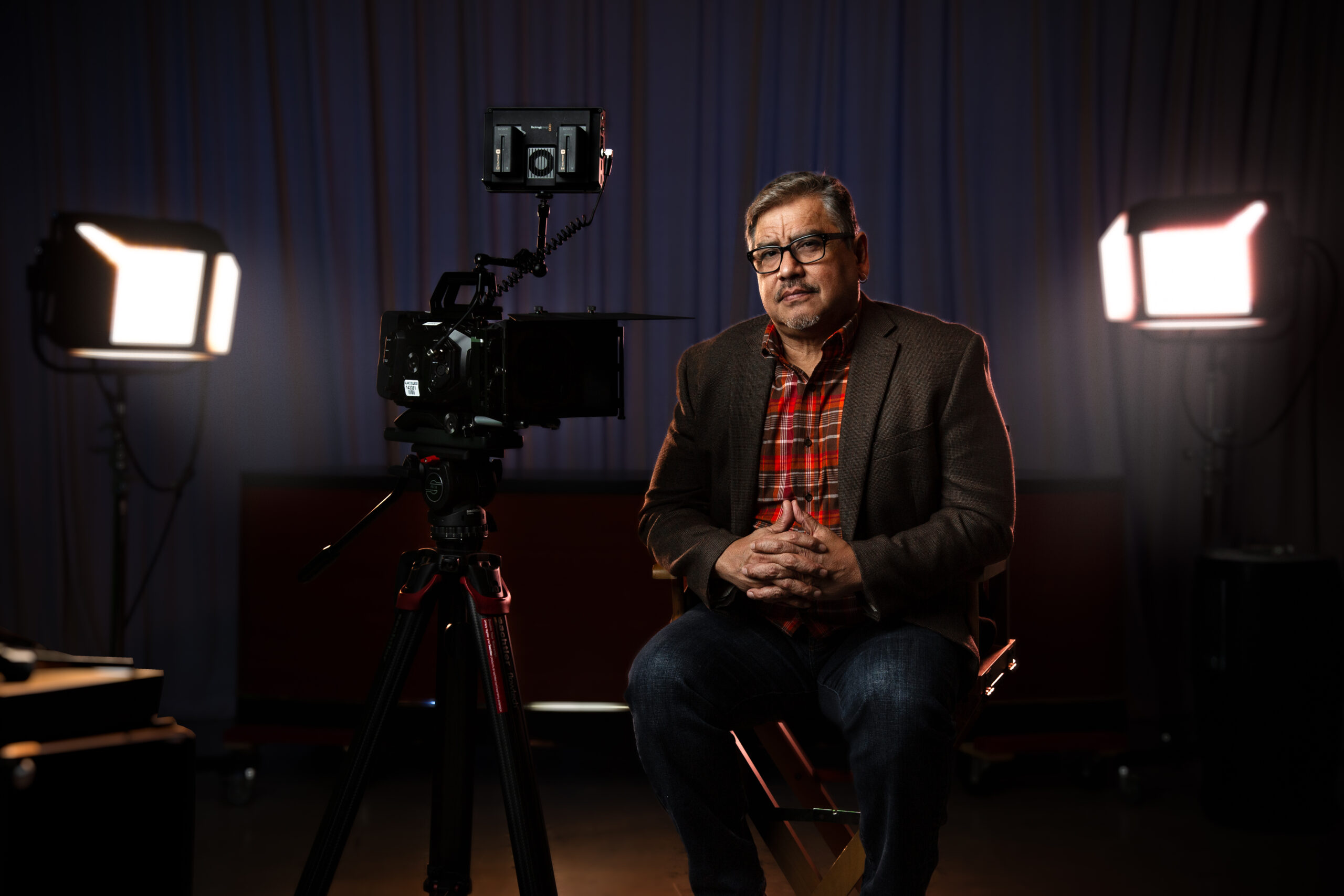Photo by Isaac Melchor & Agustin De Leon/San Antonio College Student News
For those interested in film and radio, San Antonio College offers a unique program that teaches students the fundamentals needed to succeed in the television, film, and radio industries. Currently, James Borrego is the Program Coordinator at SAC for the Radio-TV-Film program, where classes are offered in digital audio production, TV film production, film and video editing, radio and television announcing, scriptwriting, and much more. Students who complete the program can earn an Associate of Applied Science or specific Certificates. As a Program Coordinator, Borrego loves teaching his students on all subjects and initially gained an interest in the industry after time in the military, “I grew up on the South Side of San Antonio and went to Harlandale High School. After high school, I joined the military and did 4 years in the Air Force, and I quickly realized I wanted to pursue a different path” he said. During Borrego’s time in the military, his brother Jesse Borrego ventured into acting. You may be familiar with Jesse Borrego as he’s a well-known actor in many Chicano films and has appeared in classics such as “Mi Vida Loca,” (1993) “Blood In Blood Out,” (1993), and “La Mission,” (2009). Jesse is a member of the program’s advisory committee and is very active in San Antonio’s community.
“He also appeared on the TV series “Fame”, during my military career and that sort of changed everything for me because it exposed me to the film industry,” Borrego said. “I remember I had gone to L.A. to visit him, and he took me to the set, and I got to see where he worked on the historic MGM lot where I met people and watched them work. I realized this was a career I had no knowledge on whatsoever. Immediately, I was drawn to the cinematographer who was Mexicano and who gave me valuable advice to go back to school. He actually had gone through the film program in the Air Force, which I had no idea they had,” he added. Eventually, this would lead to Borrego enrolling at SAC where he completed the Radio & Film program, going on to earn his Bachelor’s at The University of Texas at Austin. Borrego also holds a Master’s in Education (Instructional Technology) from UTSA.

Referring to his time at UT-Austin in the early 90s, Borrego recalls what the scene was like, “It was an exciting time to be a filmmaker in Austin you know. At that time, I was also discovering my identity. Yes, I was Mexican American and we knew the word Chicano, but really… were told not to embrace that type of identity. But I kind of embraced it in the sense that well… this is our identity, and we need to do films about Chicanos. That’s our sensibility, and write what you know is what they tell you when you’re writing a screenplay. And I knew already that as far as representation, there wasn’t much out there for Chicanos compared to now. Of course, it’s gotten better, but it’s not where we need it to be,” he emphasized. In the 90s Borrego also had the amazing opportunity to work as a production assistant and extra on the ‘Selena” film, (Find him in the kitchen scene where Selena is shopping for the Grammys), and “Why Do Fools Fall In Love,” featuring Halle Berry and Vivica A. Fox. “Those were great experiences,” he said. Borrego also worked on various productions in San Antonio during this time including the 2000 film “All The Pretty Horses” featuring Matt Damon and Penelope Cruz.
Fast forward to 2006, Borrego then became a Senior Producer at UTSA and spent 16 years there. Since 2016, he’s been with San Antonio College and looks to expand the Radio-TV-Film program with additional certificates that were added earlier this year. “Now in higher education and particularly in our community college world, they’re really pushing the concept of micro-credentials. And I don’t know if you’re familiar with badges, but you put them on your LinkedIn. It just proves that you have competency and skills in certain areas. So, for us, it could be cinematography. It could be editing. You may want to even get certifications from Adobe or Final Cut. You want to have those certifications because it lets people know you have those skills. And so badging is a common thing now that’s being used in education and certificates,” he said. Borrego also recently helped develop 3 brand new certificate options in video production, and film and audio production, “This is in line with what the college district wants to do. So a resume isn’t just going to be good enough anymore because we all know resumes can be inflated, but a badge actually proves that you can do these things within an academic course so they carry a little bit more weight. And so, we were able to create those certificates,” he said. “We announced to the students that as they’re building their courses, in addition to getting their A.A.S. they want to go ahead and get the certificates so they can start fashioning their interests. We want them to get their degree, certificates, and badges.”

When it comes to the importance of storytelling, Borrego believes we need more in the Chicano community and emphasizes authenticity, “If you want to be a true filmmaker, you want to learn how to write and stay true to your stories and narratives. It’s a challenge as a Chicano filmmaker and then also finding narratives that are culturally relevant. We know that in San Antonio, Texas, and L.A., experiences as a Chicano are different,” he said. “Sorry, I hate to say that we’re not all on the same page. Go to New Mexico, (where I once worked). Totally different Chicano. They’re more into their Native American roots, whereas in South Texas, we’re rural and we’re not as urban like the L.A. Chicano is. And even in San Antonio, it’s a totally different experience in the North Side and East Side. You have to understand that those differences to my point, is that every corner of the world that we come from is valid. You have to tell the story from that perspective. Our language and culture are unique. So, just staying true to who you are can also be a challenge because it doesn’t fit the narrative the film industry can sell.”
In spite of those challenges, Borrego encourages students to remain true to themselves and to stay on course with their educational ambitions. For anyone interested in the Radio-TV-Film program visit San Antonio College’s website for more information, and contact James Borrego directly with any questions.
SAC : Academics : Programs : Radio | Alamo Colleges











